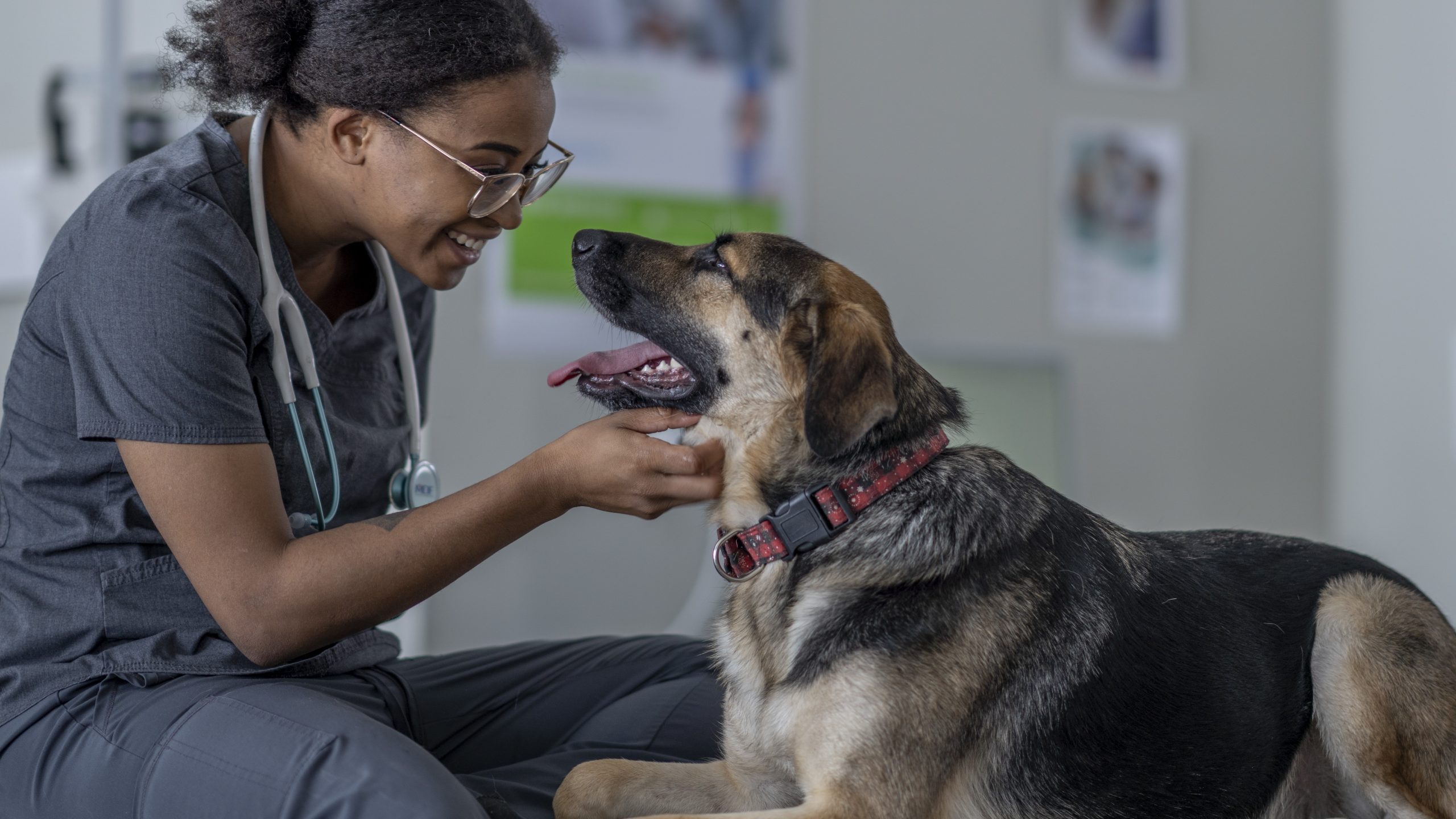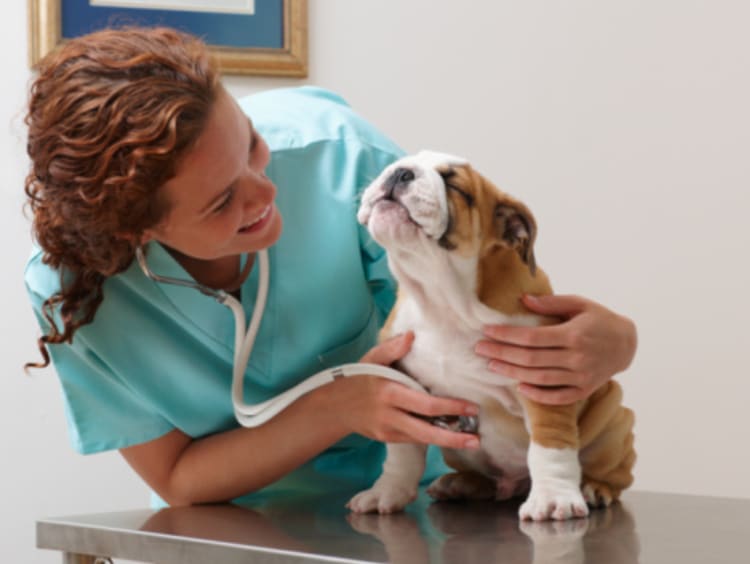Vaccination Guidelines From Your Trusted Vet
Vaccination standards given by your relied on vet play a crucial function in protecting your pet's health and wellness and health. Furthermore, resolving typical misunderstandings bordering vaccinations can additionally boost pet dog proprietors' self-confidence in these preventative actions.

Relevance of Vaccinations
Inoculations play an essential role in securing pets against a variety of preventable illness. By boosting the immune system to identify and fight particular virus, injections significantly minimize the incidence of infectious illness that can affect a family pet's health and wellness and longevity. Not only do inoculations safeguard private pets, yet they likewise add to herd immunity, thereby decreasing the overall occurrence of conditions in the animal population.
Timely vaccinations assist to alleviate the spread of conditions such as rabies, parvovirus, and distemper, which can have severe repercussions for both human beings and family pets. In addition, vaccinations are frequently a need for boarding centers, grooming services, and pet parks, making them crucial for those that desire to mingle their pet dogs.

Core Injections for Animals
While the certain vaccination needs of pets can differ based upon private factors, core vaccines are generally suggested to safeguard versus the most usual and severe diseases (Veterinarian Enterprise). Core injections are those deemed essential for all family pets, regardless of their way of living or geographic area, as they safeguard against extremely contagious and potentially fatal illnesses
For canines, the core injections consist of those for canine distemper, parvovirus, adenovirus (liver disease), and rabies. Canine distemper is a viral illness that impacts the respiratory, intestinal, and nerves. Parvovirus is known for creating extreme intestinal disease, especially in young puppies. Adenovirus can cause liver illness, while rabies is a zoonotic illness that positions a risk to both people and pets.
In felines, core vaccines encompass feline panleukopenia, feline calicivirus, feline herpesvirus (rhinotracheitis), and rabies. Feline panleukopenia is a very contagious viral illness that affects the body immune system and intestinal tracts. Calicivirus and herpesvirus are significant contributors to upper respiratory system infections in pet cats, while rabies remains a critical worry for public health.
Speak with your veterinarian to guarantee your animals obtain their core inoculations on time.
Non-Core Vaccines Explained
Non-core vaccines are tailored to attend to certain risks connected with an animal's way of living, direct exposure, and atmosphere to specific conditions. Unlike core injections, which are globally advised for all family pets, non-core vaccinations are taken into consideration based upon private circumstances. These injections are particularly essential for family pets that may encounter distinct pathogens as a result of their geographical location, travel habits, or activities.
Examples of non-core injections include those for Bordetella bronchiseptica, which is linked to kennel cough, and Lyme condition, brought on by ticks. Family pets that regularly communicate with various other pets, such as those in boarding facilities, canine parks, or grooming settings, might take advantage of Bordetella vaccination. If you live in a location where Lyme illness is common, immunizing against this disease can be a sensible option for outdoor-loving dogs.
Other non-core vaccinations might consist of those for leptospirosis, canine influenza, and feline leukemia, relying on the specific threat variables existing. It is necessary to have a detailed conversation with your veterinarian concerning your family pet's lifestyle and the possible need for these vaccines, find out this here making certain a customized inoculation strategy that ideal protects your hairy close friend.
Vaccination Arrange Summary

As animals mature, it is very important to adhere to the advised booster inoculations. Emergency Vet. For adult animals, core vaccinations are typically offered every one to three years, depending on the certain vaccine and regional laws. Non-core vaccines may be encouraged based upon lifestyle variables and regional disease occurrence, demanding a tailored method
Routine vet examinations are essential for upgrading inoculation timetables. Your vet can provide assistance on one of the most appropriate immunizations for your animal, factoring in age, health and wellness standing, and ecological dangers. By staying positive and informed, pet owners can ensure their hairy companions receive efficient and prompt vaccinations, thereby securing their health and wellness and wellness throughout their lives.
Typical Myths About Vaccinations
Misconceptions regarding animal inoculations can bring about complication and unwillingness among animal owners relating to the immunization process. One prevalent myth is that vaccinations are unneeded for interior pets. While it holds true that interior pet a knockout post dogs deal with lower risks, they are not entirely unsusceptible to conditions, as microorganisms can be introduced with different methods, consisting of human apparel and other pet dogs.
Another false impression is that vaccinations can create the diseases they aim to protect against. Actually, a lot of injections contain suspended or undermined virus, which can not cause condition in healthy and balanced animals. Some family pet owners likewise believe that their pet dogs must not be immunized if they are currently healthy; nevertheless, vaccinations are a positive procedure that aids prevent the start of health problem.
In addition, several pet dog owners fear that vaccinations will certainly lead to long-term health difficulties. While side effects can occur, they are short-term and normally moderate. The advantages of inoculation-- securing family pets from potentially dangerous conditions-- much surpass the dangers. Understanding these common myths is crucial for liable animal possession and ensuring the wellness and safety of your hairy buddies. Constantly consult your vet for precise information tailored to your family pet's certain demands.
Conclusion
In summary, adherence to vaccination standards is important for ensuring the health and durability of family pets. Core injections offer crucial protection against serious conditions, while non-core vaccines address particular risks based on individual way of lives. Establishing an extensive vaccination timetable, combined with normal veterinary exams, promotes optimum health management. Resolving common myths surrounding vaccinations better enhances the significance of informed decision-making in pet dog care. Eventually, an aggressive strategy to vaccinations is essential for keeping pet dog well-being.
Not just do vaccinations secure individual pets, but they also contribute to herd immunity, thereby minimizing the overall occurrence of conditions in the family pet population.
False impressions regarding link pet vaccinations can lead to complication and reluctance among pet owners pertaining to the booster shot process. While it's real that indoor animals deal with reduced risks, they are not totally immune to conditions, as pathogens can be presented via various ways, consisting of human clothing and various other pets.
Some pet owners also think that their pets ought to not be immunized if they are already healthy; however, inoculations are a positive step that helps protect against the start of health problem.
The advantages of vaccination-- shielding pets from potentially deadly diseases-- much surpass the risks.